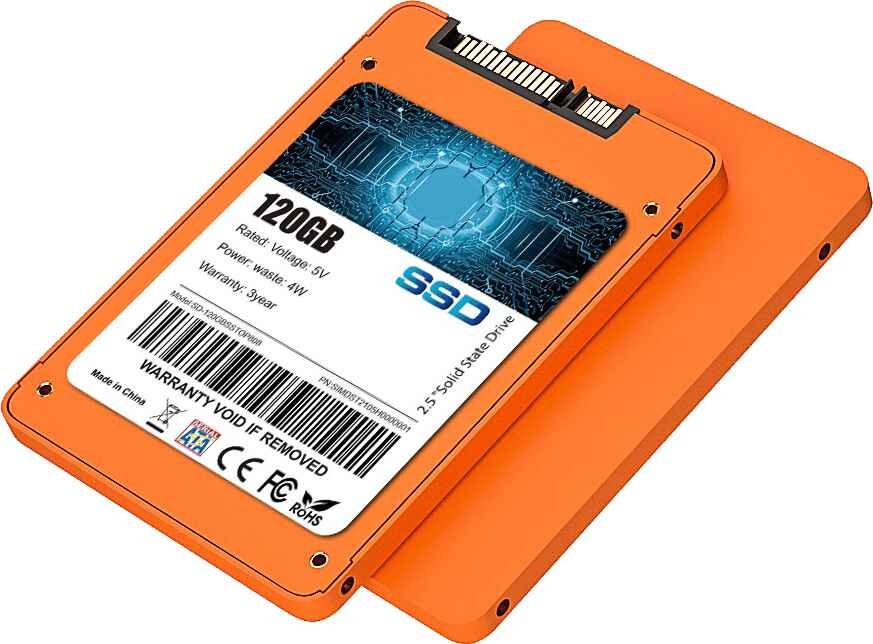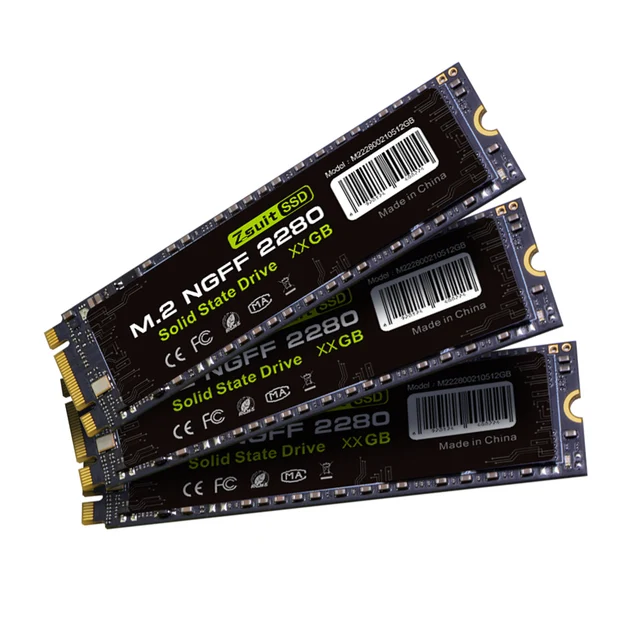Introduction to SSD Bottleneck Calculator. As technology continues to advance at a rapid pace, the need for efficient storage solutions becomes increasingly important. Whether you’re a casual computer user or a professional in the field, understanding storage performance and its bottlenecks is crucial. In this article, I will introduce you to the concept of storage performance and how an SSD bottleneck calculator can help you maximize it.
Understanding Bottlenecks in Storage Systems
Before diving into the benefits of an SSD bottleneck calculator, it’s essential to understand what bottlenecks are in storage systems. A bottleneck refers to a point of congestion that limits the overall performance of your storage system. It can occur at different levels, such as the CPU, memory, or storage device. In the case of storage performance, a bottleneck often occurs at the storage device level, where the speed of data transfer becomes a limiting factor.
What is an SSD Bottleneck Calculator?
An SSD bottleneck calculator is a tool designed to analyze and predict potential bottlenecks in your storage system. It takes into account various factors such as the type of SSD, interface speed, and workload to estimate the maximum achievable performance. By using an SSD bottleneck calculator, you can identify potential bottlenecks in your system and make informed decisions to optimize its performance.

Importance of Using an SSD Bottleneck Calculator
Using an SSD bottleneck calculator is crucial for maximizing storage performance. Without a clear understanding of the potential bottlenecks, you may end up investing in expensive storage devices that do not deliver the expected performance. By utilizing an SSD bottleneck calculator, you can accurately determine the limitations of your current storage system and make informed decisions on upgrades or optimizations.
How to Use an SSD Bottleneck Calculator
Using an SSD bottleneck calculator is a straightforward process that involves a few simple steps. Firstly, you need to gather information about your storage system, such as the type of SSD, interface speed, and workload. Once you have this information, you can input it into the SSD bottleneck calculator. The calculator will then analyze the data and provide you with an estimate of the maximum achievable performance and identify any potential bottlenecks in your system.
Factors to Consider When Calculating SSD Bottlenecks

When using an SSD bottleneck calculator, it’s important to consider several factors that can impact the performance of your storage system. These factors include the type of SSD (SATA, NVMe, etc.), interface speed (e.g., SATA III, PCIe 3.0), workload (e.g., gaming, video editing), and the overall system configuration. By taking these factors into account, you can accurately calculate the potential bottlenecks and optimize your storage performance accordingly.
Benefits of Maximizing Storage Performance with an SSD Bottleneck Calculator
Maximizing storage performance comes with numerous benefits. Firstly, it allows for faster data transfer, resulting in quicker file access and reduced loading times. This is particularly crucial for tasks that require high-speed data processing, such as video editing or gaming. Additionally, maximizing storage performance can improve overall system responsiveness, leading to a smoother user experience. By utilizing an SSD bottleneck calculator, you can unlock the full potential of your storage system and enjoy these benefits.
Common Misconceptions about SSD Bottlenecks
There are several common misconceptions about SSD bottlenecks that need to be addressed. One of the most prevalent misconceptions is that upgrading to a faster SSD automatically eliminates bottlenecks. While upgrading your SSD can improve performance, it may not be the most effective solution if other factors, such as the interface speed or workload, are limiting performance. Another misconception is that more expensive SSDs always deliver better performance. The truth is that the performance of an SSD depends on various factors, and a higher price tag does not guarantee better performance.
Tools and Resources for Optimizing Storage Performance

In addition to SSD bottleneck calculators, there are other tools and resources available for optimizing storage performance. One such tool is a storage performance monitoring software that provides real-time insights into the performance of your storage system. These tools can help you identify bottlenecks and make informed decisions on optimizations. Additionally, online forums and communities dedicated to storage performance can provide valuable insights and recommendations based on real-world experiences.
Understanding the Concept of a Bottleneck Calculator
To fully grasp the benefits of an SSD bottleneck calculator, it’s important to understand the concept behind it. A bottleneck calculator takes into account various factors and analyzes them to determine the maximum achievable performance of your storage system. It helps you identify potential bottlenecks and make informed decisions to optimize your system’s performance. By understanding this concept, you can effectively utilize an SSD bottleneck calculator to maximize your storage performance.
An SSD bottleneck calculator can play a crucial role in maximizing your storage performance. By accurately identifying potential bottlenecks, you can make targeted optimizations to eliminate or mitigate these limitations. This can involve upgrading your SSD, optimizing the system configuration, or adjusting the workload to better align with the capabilities of your storage system. By using a bottleneck calculator effectively, you can unlock the full potential of your storage system and achieve optimal performance.
How to Use an SSD Bottleneck Calculator Effectively
To make the most out of an SSD bottleneck calculator, it’s essential to use it effectively. Start by gathering accurate information about your storage system, including the SSD type, interface speed, and workload. Ensure that the data you input into the calculator is precise to obtain accurate results. Once you have the results, carefully analyze the potential bottlenecks and consider the recommendations provided by the calculator. Make informed decisions based on these insights to optimize your storage performance effectively.
Common Misconceptions about Bottleneck Calculators
There are a few common misconceptions about bottleneck calculators that need to be addressed. One misconception is that bottleneck calculators are only useful for professionals or experts in the field. In reality, bottleneck calculators are designed to be user-friendly and can be utilized by anyone interested in maximizing storage performance. Another misconception is that bottleneck calculators are time-consuming and complicated to use. While they do require some input of data, the process is generally straightforward and can be completed quickly.
Real-World Examples of Optimizing Storage Performance with an SSD Bottleneck Calculator
To provide a real-world perspective, let’s look at a few examples of how an SSD bottleneck calculator can optimize storage performance. In the case of a video editor, the calculator can help determine the optimal SSD type and interface speed to handle large video files efficiently. For a gamer, the calculator can analyze the workload and recommend the best SSD configuration for faster loading times and smoother gameplay. These examples demonstrate how an SSD bottleneck calculator can make a tangible difference in maximizing storage performance.
Alternative Tools for Optimizing Storage Performance
While SSD bottleneck calculators are effective tools for optimizing storage performance, there are alternative options available. One such option is storage benchmarking software, which tests the performance of your storage system and provides insights into potential bottlenecks. Additionally, consulting with storage experts or professionals in the field can offer valuable advice tailored to your specific needs. Exploring these alternative tools can provide a comprehensive approach to optimizing storage performance.
FAQ’s Of SSD Bottleneck Calculator
Can an SSD bottleneck calculator be used for both desktop and laptop systems?
Yes, an SSD bottleneck calculator can be used for both desktop and laptop systems, as long as the necessary information about the storage system is provided.
Are there any limitations to using an SSD bottleneck calculator?
A: While an SSD bottleneck calculator is a valuable tool, it’s important to remember that it provides estimates based on the information provided. Actual performance may vary depending on various factors.
Can an SSD bottleneck calculator recommend specific SSD brands or models?
No, an SSD bottleneck calculator does not recommend specific brands or models. Its purpose is to analyze the performance potential based on the provided information.
Do I need to be a computer expert to use an SSD bottleneck calculator?
No, an SSD bottleneck calculator is designed to be user-friendly and accessible to anyone interested in maximizing storage performance.
Can an SSD bottleneck calculator be used for RAID configurations?
Yes, an SSD bottleneck calculator can be used for RAID configurations. However, it’s important to provide accurate information about the RAID setup for accurate results.
Is an SSD bottleneck calculator compatible with all operating systems?
Yes, an SSD bottleneck calculator is compatible with all operating systems, as it focuses on analyzing the hardware aspects of the storage system.
Are there any costs associated with using an SSD bottleneck calculator?
No, most SSD bottleneck calculators are available online for free and do not require any additional costs.
Conclusion Of SSD Bottleneck Calculator
Maximizing storage performance is a crucial aspect of any modern computing system. By understanding the concept of bottlenecks and utilizing an SSD bottleneck calculator effectively, you can optimize your storage system’s performance. By eliminating bottlenecks, you can enjoy faster data transfer, reduced loading times, and an overall smoother user experience. Utilize the available tools and resources, consider the factors that impact storage performance, and make informed decisions to unlock the full potential of your storage system.

